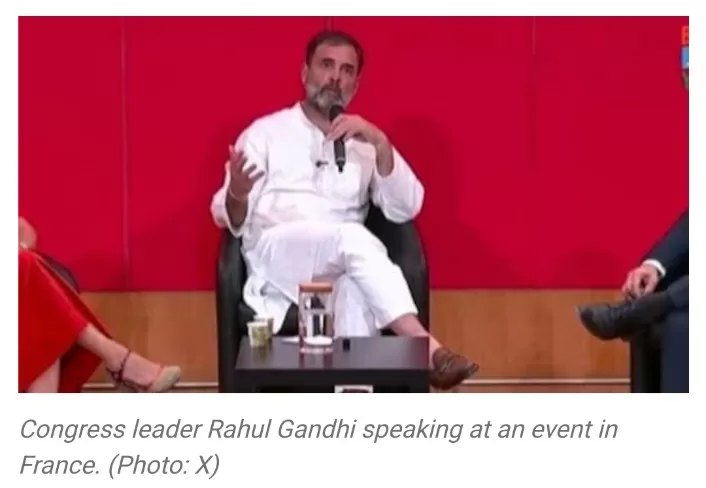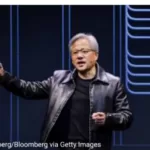In a candid interaction with students and academics in Paris, former Congress president Rahul Gandhi delivered a scathing critique of the Bharatiya Janata Party (BJP), asserting that they have “nothing” to do with Hinduism. Gandhi emphasized that there is “nothing Hindu” about their actions and accused the ruling party of pursuing power at any cost.
“I have read Gita, I’ve read a number of the Upanishads, I’ve read many Hindu books; there is nothing Hindu about what the BJP does, absolutely nothing,” Gandhi proclaimed in response to a question regarding the rise of “Hindu nationalism” in India.
Gandhi further expressed his commitment to combating violence against marginalized communities, particularly Dalits, and highlighted the BJP and the RSS’s attempts to suppress the expression and participation of lower castes, other backward castes, tribals, and minority communities.
He called for political imagination to address these issues head-on, emphasizing that the direction and imagination provided by the country’s leadership shape its people.
“This is an attack on the soul of India, and the people doing this should pay a price for it,” Gandhi added, referring to the current political climate in the country.
Reflecting on his own legal battles, Gandhi mentioned the 24 legal cases against him and the unique conviction he faced for criminal defamation. However, he underscored the ongoing fight to preserve India’s democratic structure.
“We are part of that fight… we are going through turbulence in our democratic structure, and there are millions of people who really believe in that democratic structure and are going to defend it with everything they’ve got,” Gandhi affirmed.
Addressing the ongoing debate about the name of the country, Gandhi noted that both “India” and “Bharat” are documented in the Constitution. He criticized the government’s actions, stating that those advocating for a name change seek to erase the historical significance embedded in the country’s name.
Gandhi also refuted the notion that the majority of India supports the current government, asserting that 60% of India voted for the current Opposition alliance. He accused the ruling party of polarizing society, spreading hatred, and maintaining close ties with influential crony capitalists.
On the topic of crony capitalism, Gandhi singled out the Adani Group, alleging monopolistic practices with documented evidence.
The session in Paris, part of Gandhi’s European tour, featured discussions on India’s foreign policy stance and its challenges in competing with China’s development model while preserving political and economic freedom.
Gandhi’s candid remarks in Paris shed light on the political landscape in India and the challenges facing the nation as it navigates issues related to identity, democracy, and economic development.







